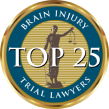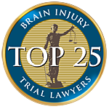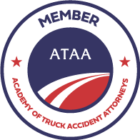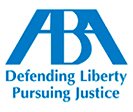The Role of Rehabilitation in Brain Injury Cases
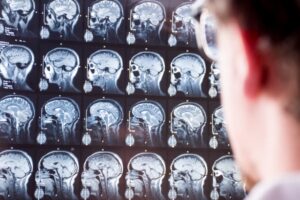
Traumatic brain injuries often lead to other long-term problems that make it difficult to work or lead an independent life. A severe brain injury can leave you with movement, thinking, language, and emotional challenges. Brain injury rehabilitation can help you relearn basic life skills you may have lost, helping you get back to the life you remember from before the accident.
However, early diagnosis and treatment improve outcomes. Cain Law is experienced in handling brain injury claims and has developed relationships with local and national medical providers to provide early diagnosis and treatment to improve long-term outcomes. In this article, the Cain Law brain injury lawyers explain the process of rehabilitation following a brain injury and how we can help.
What Does Brain Rehabilitation Cover?
Brain rehabilitation is an umbrella term for a range of treatments designed to restore as much brain function as possible to return you to the condition you were in before your brain injury. Rehabilitation is often a long-term process, which can become very expensive over time. You can file a brain injury claim to hold the person responsible for your accident liable for whatever treatment you need.
Rehabilitation treatment often begins with inpatient rehabilitation before proceeding to outpatient treatment as the recovery process continues. According to the National Library of Medicine, brain injury rehabilitation includes several different types of treatment:
- Physical therapy to improve movement and balance
- Speech-language therapy to improve communication and swallowing skills
- Cognitive rehabilitation therapy to improve memory and focus
- Occupational therapy to improve daily living skills
- Vocational rehabilitation to restore the ability to work
- Behavior therapy and counseling to address behavioral and emotional effects of the brain injury that might otherwise impact family members
For example, the Brain Injury Rehabilitation Program at Johns Hopkins Medicine includes working with patients on:
- Daily living skills
- Physical care, such as nutrition and medication
- Mobility skills such as walking and using a wheelchair
- Communication skills such as speaking and writing
- Vocational training
- Pain management
- Socialization skills
A traumatic brain injury can make it difficult for you to perform basic self-care tasks such as eating, walking, personal grooming, and dressing. Even though damaged brain cells cannot regrow, your brain can learn new ways to perform the same tasks, an ability known as neuroplasticity.
A comprehensive rehabilitation program will include instruction to restore function in performing these vital skills through repetition. By repeating the same task repeatedly, you can take advantage of the brain’s neuroplasticity to learn new ways of doing everyday things. Over time, you may be able to regain many of your former skills.
Your brain injury care team can include specialized nurses, physical therapists, occupational therapists, speech and language therapists, dietitians, psychologists, and neuropsychologists. Each member of your care team will focus on a different aspect of the rehabilitation program, depending on their specialized area of knowledge.
Types of Brain Rehabilitation
There are many different aspects to a brain rehabilitation program. Not every patient will receive the same set of treatments because the treatment prescribed depends on the type of brain injury and the severity of your symptoms. For instance, you may need different rehabilitation treatment for a blow to the head than for a foreign object piercing the skull.
Some patients benefit from concussion management, a program designed to assess patients who have suffered a concussion, determine their individual needs, and intervene early. According to the National Library of Medicine, early intervention improves outcomes in sports concussion cases. Skilled nursing facilities offer specialized concussion management treatment.
The Brain Injury Association of America says treatment usually begins with acute rehabilitation at the hospital. Acute rehabilitation aims to help the person regain daily living skills, like walking, using the bathroom, or dressing.
When the patient is discharged, the next phase is post-acute rehabilitation. This treatment lasts for several hours a day, often at a transitional living facility. The goal is to help the patient regain their independence.
Some patients cannot handle rehabilitation treatments for several hours a day. In these cases, they take part in a less demanding program known as sub-acute rehabilitation over a longer span of time, often at a specialized nursing facility.
Many brain injury patients suffer from confusion, lack of focus, and loss of memory. These patients may need cognitive rehabilitation to help them regain their ability to mentally focus and recover memory skills they may have lost.
Brain injuries often interfere with a person’s ability to work, especially if their chosen career depends on life skills lost because of the injury. Patients having trouble returning to work may receive vocational case coordination, a treatment designed to restore their ability to work again.
It’s also common for brain injury patients to have trouble with motor control. This can make driving, playing sports, or even walking down the street difficult. Some patients will receive neuromuscular brain rehabilitation to help them regain lost motor control skills.
Speech and communication problems are also common. Speech and language rehabilitation can help restore the ability to communicate effectively as much as possible.
Although brain rehabilitation often begins in the hospital soon after the accident, outpatient therapy is usually available after the patient is discharged. Outpatient treatment can continue for years if necessary. Patients who were never hospitalized for their injury and never received acute rehabilitation treatment may also use outpatient therapy.
How Our Brain Injury Lawyers Can Help
Rehabilitation is key in brain injury cases, but it’s also an expensive form of treatment. You shouldn’t have to bear that expense yourself if someone else caused your injury. An Oklahoma City brain injury lawyer from Cain Law can help. Among the advantages of hiring us include the following:
Cain Law has established relationships with local and national medical providers. We can help coordinate your care to ensure you receive meaningful medical treatment, which may help improve your long-term prognosis.
- Cain Law has won over $100 million for our clients.
- There is no charge unless and until we recover compensation for you.
- The initial consultation is free and without obligation.
- We are available 24/7 to take your call and get started on your case.
- We have a rapid-response team ready to start investigating the accident right away.
- Can’t come to us? No problem, we’ll come to you! Your health is our top priority at the hospital, your home, or wherever you may be.
- You need medical help for your brain injury as soon as possible. We can make that happen.
If you need rehabilitation for a brain injury case in Oklahoma City, contact the Cain Law for your free consultation today.







